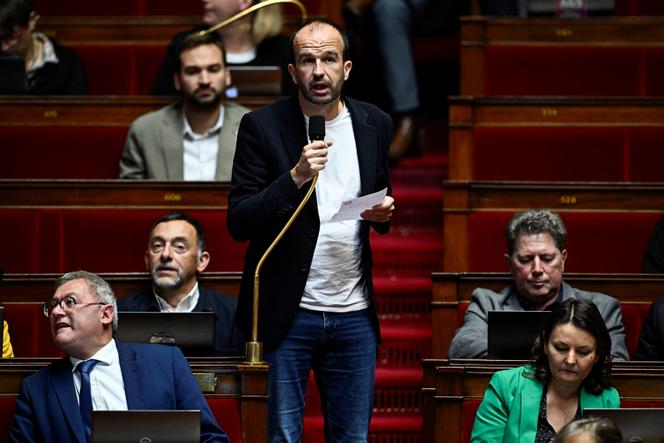


Donald Trump's victory and Kamala Harris's defeat in the US presidential election have resurfaced divisions within France's political left over international but also domestic issues. Clearly keen to keep control of the narrative, France's radical left La France Insoumise (LFI) was the first to react, on Wednesday, November 6. LFI lawmaker Antoine Léaument saw in the failure of the Democratic candidate's moderate positioning a validation of LFI's "radical" stance against a "soft" left.
In a statement, LFI argued that the Republican candidate's return to the White House is implacable proof that "only a radical and popular left" could prevail against the far right. "You can't mobilize people on a neoliberal platform and without social and geopolitical breaks" with the status quo, Manuel Bompard, LFI's top official, wrote on X. in reference to Harris, the center-left candidate who was called a "communist" and a "total Marxist" by Trump, two disqualifying terms on the other side of the Atlantic.
"An American election can't be won further to the left: In fact, that was Bernie Sanders' limit," explained political scientist Philippe Marlière, referring to this figure of the American far left, who unsuccessfully sought the Democratic presidential nomination in 2016 against Hillary Clinton.
Driven by visceral anti-Atlanticism, LFI leader Jean-Luc Mélenchon wielded "confusionism," believes Marlière, by equating the Democrat and the Republican. "The USA couldn't choose the left: there wasn't one," reacted Mélenchon, a three-time presidential candidate, after Trump's victory on Wednesday morning. Two days earlier, he said that the two contenders for the White House were "similar but not identical," referring to their stances on the Israeli-Palestinian conflict and support of "capitalism." "The lesser evil is always evil," he concluded, while conceding that he would have voted for Harris if he had lived in a swing state.
LFI is trying to take the lead, at a time when the question of aid to Ukraine and the strengthening of European defense are likely to return to the forefront of public debate. On these two issues, the party risks swimming against the tide. "It could be very complicated for Mélenchon," said political scientist Rémi Lefebvre. Eurosceptic, LFI has always wavered on the war with Russia, advocating "peace" and calling for a "conference on borders," a way of calling into question those of Ukraine.
You have 34.5% of this article left to read. The rest is for subscribers only.
